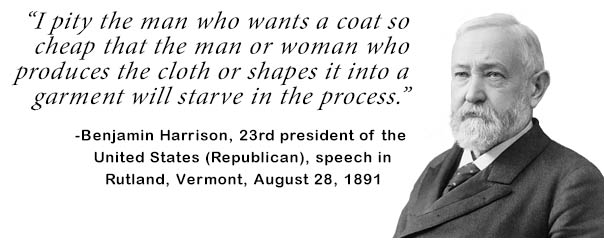
 Learn about the ballot initiative:
Learn about the ballot initiative:
The language of the initiative
Click to read the exact language of the initiative.
Initiative sponsors
Click to read about the Alaskans who started the petition.

 Learn more about minimum wage in Alaska:
Learn more about minimum wage in Alaska:
(click to show/hide):
What is Alaska's current minimum wage?...
The minimum wage in Alaska is set at $.50 over the federal minimum wage. Since the current federal minimum wage is $7.25, Alaska's minimum wage is $7.75 per hour. Incidentally, the $.50 Alaska premium was first established in 1959, when the federal minimum wage was $1.00 per hour.
Why do we need to raise the minimum wage?...
The minimum wage is supposed to assure "the maintenance of minimum standards of living necessary for the health, efficiency, and general well-being of workers." No one can say Alaska's current minimum wage even comes close to doing this. A full-time, year-round worker making $7.75 an hour earns only $16,120 annually. This is $8,600 below the federal poverty threshold for a family of three in Alaska ($24,740) and $13,700 below the federal poverty threshold for a family of four ($29,820).
How does Alaska compare to other states?...
After having had the highest minimum wage in the nation for the first four decades after statehood, Alaska has fallen to 17th, behind even low-wage states such as Florida ($7.93) and Arizona ($7.90). Eleven states (including Florida and Arizona) provide for an automatic annual cost-of-living adjustment to their minimum wage based on the Consumer Price Index (CPI). Our Northwest neighbors, Washington ($9.32) and Oregon ($9.10), have the highest state minimum wages. The minimum wage in California will increase to $10 per hour on January 1, 2016.
When was the minimum wage last increased in Alaska?...
In 2009, the legislature restored the $.50 over federal minimum wage Alaska rate, and the Alaska minimum wage has been $7.75 per hour since 2010. Prior to that, the first major revision to the Alaska minimum wage law since statehood had been passed in 2002. When bills introduced by Governor Knowles and the House Speaker in 2001 were stalled during that year's legislative session, the Alaska AFL-CIO gathered over 50,000 signatures for an initiative based on Knowles' bill, which called for an increase from $5.65 to $7.15, with an annual CPI adjustment or to one dollar over the federal rate, whichever was greater. The legislature passed a bill identical to the AFL-CIO initiative, thus keeping it off the 2002 ballot. Less than a year after passing that bill, the legislature repealed both the CPI and the "one dollar over federal" wage adjustments.
Had the legislature left the cost of living adjustment in place in 2003, the $7.15 Alaska minimum wage which took effect on January 1, 2003 would be $9.53 per hour today. The measure proposed by Alaskans for a Fair Minimum Wage would raise the state minimum wage to approximately what it should have been by January 1, 2016 had the 2003 legislature not repealed the cost of living adjustment. The increase is phased in over two years (to $8.75 effective January 1, 2015 and to $9.75 effective January 1, 2016, with cost of living adjustment annually after that) to accommodate employers of low-wage workers in adjusting to the increase.
Who makes the minimum wage? Are they mostly teenagers and part-time?...
Studies have shown that over 75% of Alaskan workers earning minimum wage are adults. While critics claim that increasing the minimum wage has a negative impact on job opportunities for youth, studies have found the effect, if any, to be minor. In fact, under current Alaska law, which the proposed initiative would not change, workers under the age of 18 who work no more than 30 hours per week are exempted from the Alaska minimum wage and fall under the federal minimum wage law only.
In Alaska, over 30,000 workers at or near the minimum wage who would benefit from this measure are employed in seafood processing, hotels, restaurants and food service, child care, as cashiers and delivery drivers, and in other low-paying occupations.

 Minumum wage studies:
Minumum wage studies:
The Impact of a Minimum-Wage Increase -New York Times
"The Congressional Budget Office has just released an analysis of the impact of increasing the federal minimum wage."
Economists agree: Raising the minimum wage reduces poverty -Washington Post
"One funny part of watching journalists cover the minimum wage debate is that they often have to try and referee cutting-edge econometric debates."
Economic research supports raising the minimum wage -Economic Policy Institute
"The fact that more than 550 economists signed a statement calling for an increase in the minimum wage in 2007 cannot be dismissed."
Putting a $9 minimum wage in context -Economic Policy Institute
"As productivity has increased and the economy has expanded, the minimum wage has been left to stagnate."
Declining value of the federal minimum wage is a major factor driving inequality -Economic Policy Institute
"Contrary to some political rhetoric of late, wage stagnation for American workers and rising inequality is not due to lack of effort."
